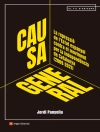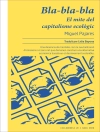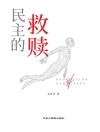The Green Revolution of 1960s introduced herbicides, pesticides, and advanced agricultural technologies to third world countries-rescuing hundreds of millions of people from malnutrition and starvation and transforming low-yield, labor-intensive farming into the high-tech, immensely productive industry it is today. Despite these stunning gains, critics of chemical farming remain vocal. Recently, the European Union passed a ban on twenty-two chemicals-about 15 percent of the EU pes...
O autorze
Claude E. Barfield is a resident scholar and the director of trade and science policy studies and technology policy studies at AEI. He is the author or editor of a number ...
Kup ten ebook, a 1 kolejny otrzymasz GRATIS!
Język Angielski ● Format EPUB ● Strony 169 ● ISBN 9780844743639 ● Rozmiar pliku 1.4 MB ● Redaktor Jon Entine ● Wydawca AEI Press ● Miasto DC ● Kraj US ● Opublikowany 2011 ● Do pobrania 24 miesięcy ● Waluta EUR ● ID 2462923 ● Ochrona przed kopiowaniem Adobe DRM
Wymaga czytnika ebooków obsługującego DRM












